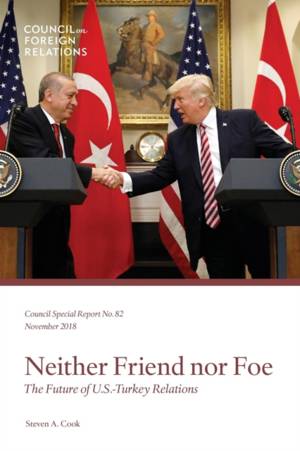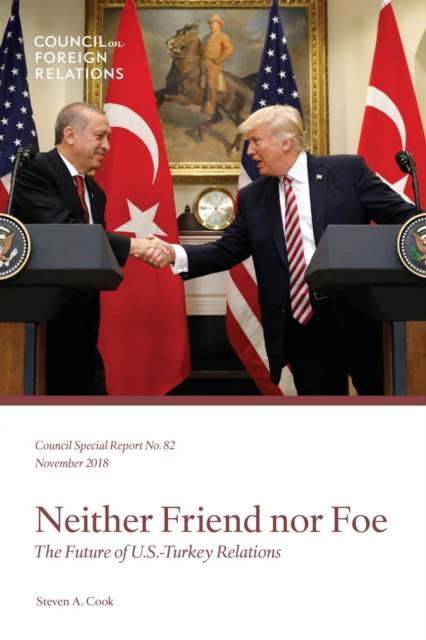
- Retrait gratuit dans votre magasin Club
- 7.000.000 titres dans notre catalogue
- Payer en toute sécurité
- Toujours un magasin près de chez vous
- Retrait gratuit dans votre magasin Club
- 7.000.0000 titres dans notre catalogue
- Payer en toute sécurité
- Toujours un magasin près de chez vous
Description
Since the 1950s, U.S. presidents have recognized Turkey as a critical ally. The legacy of this Cold War partnership continues to frame U.S. policy discussions about Turkey in which the country is routinely referred to as a strategic ally. Yet the world has changed considerably since the Cold War ended, and transformations in global, U.S., and Turkish politics over the last three decades require a reevaluation of the U.S.-Turkey relationship. Turkish opposition politicians have been supportive of the Bashar al-Assad regime, are hostile to expressions of Kurdish nationalism, joined the AKP in demanding Fethullah Gulen's extradition from the United States, and stoke anti-Americanism.
Although some present and former U.S. policymakers continue to make the case that Turkey is a strategic partner and an anchor for stability, the evidence for these declarations is thin. The two countries do not share interests or values. Analysts and officials looking for a new and positive framework for bilateral ties are unlikely to find one. Instead, the basic assumption that should guide Washington in its approach to Ankara is that while Turkey remains formally a NATO ally, it is not a partner of the United States. The bilateral relationship is marked by ambivalence and mistrust.
The strategic relationship is over, and going forward, cooperation between the countries will be limited and contingent on specific circumstances. Policymakers should regard Turkey as neither a friend of the United States nor as an enemy. In many areas, Turkey is a competitor and antagonist of the United States. As a result, American officials should abandon the intensive and often fruitless diplomatic efforts to convince Turkish policymakers to support the United States. Instead, the United States should not be reluctant--as it has been in the past--to oppose Turkey directly when Ankara undermines U.S. policy. In practical terms this means the United States should develop alternatives to Incirlik Air Base, suspend Turkey's participation in the F-35 jet program, and continue to work with the People's Protection Units (YPG) to achieve its goals in Syria.
Spécifications
Parties prenantes
- Auteur(s) :
- Editeur:
Contenu
- Nombre de pages :
- 36
- Langue:
- Anglais
- Collection :
- Tome:
- n° 82
Caractéristiques
- EAN:
- 9780876097571
- Date de parution :
- 13-11-18
- Format:
- Livre broché
- Format numérique:
- Trade paperback (VS)
- Dimensions :
- 152 mm x 229 mm
- Poids :
- 63 g

Les avis
Nous publions uniquement les avis qui respectent les conditions requises. Consultez nos conditions pour les avis.






